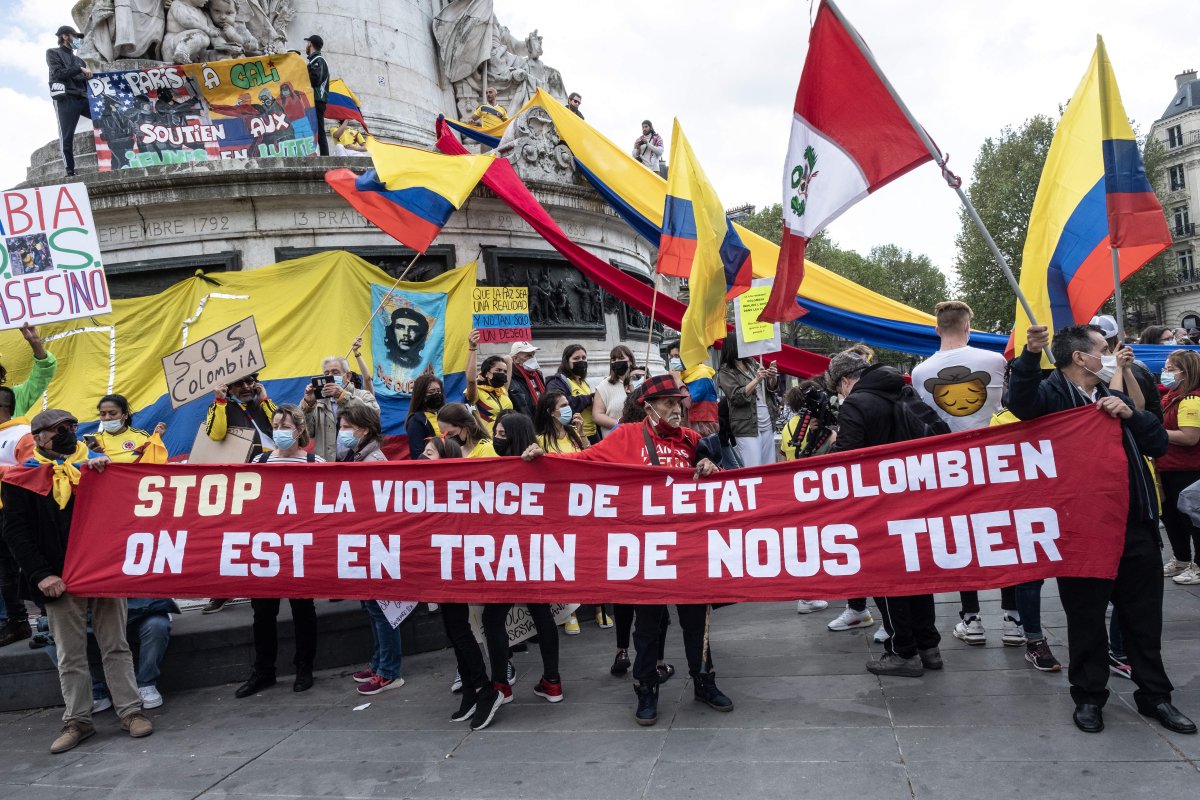Colombia’s wave of anti-government protests entered their fourth week on Wednesday, as unions, student groups and others turned out at marches to demand social change amid intermittent talks between the government and strike organizers.

The protests have been marked by violence by both police and civilians. The attorney general’s office has confirmed 15 deaths connected to protests, while one human rights group tallies more than 40.
President Ivan Duque earlier this week ordered the clearance of road blockades around the country, which have caused shortages of food and gasoline.
The demonstrations, originally called in late April against a now-canceled tax plan, have expanded to include demands like a basic income, an end to police violence and opportunities for young people.
A health reform also opposed by many protesters, which they had criticized as too vague to make real change to Colombia’s fragile healthcare system, was shelved by a joint congressional committee on Wednesday.
Some 8,000 people attended protests in capital Bogota, the mayor’s office estimated. It added in a statement that all demonstrations were peaceful, but urged people to begin journeys home by 4 p.m.
Hundreds gathered in Bogota’s Bolivar Plaza at lunchtime.
“We’re accompanying our young people, our children, our grandchildren, who still lack opportunities despite our fighting for so long,” said lawyer Roberto Hermida, 68.
Hermida said he wanted there to be more educational opportunities and better healthcare.
“Colombia has lost its fear and we’ll keep on until there is real change, because if not we’ll keep suffering,” said 35-year-old teacher Luis Carlos Garcia, carrying his small son.
Ati Quigua, 40, an Arhuaco indigenous leader, said she was protesting murders of human rights activists with 50 members of her community, saying they were on an “indefinite strike.”
A national strike committee formed by major unions, student groups and others, has held several discussions with government representatives about protesters’ demands, but the two sides are not yet holding formal talks.
They are set to meet again with the government on Thursday morning.
Organizers have vowed protests will continue in the meantime.
The economic fall-out of the coronavirus pandemic has rolled back recent anti-poverty gains in Colombia, sending unemployment soaring, shuttering businesses and forcing the government to increase its debt load.
Demonstrations and blockades cost the county some $132 million per day, the finance ministry has said, and analysts predict the protests may slow Colombia’s recovery from a record economic contraction of 6.8 per cent last year.
— Reporting by Nelson Bocanegra; writing by Julia Symmes Cobb
- Harvey Weinstein hospitalized after return to jail following rape conviction overturn
- California mom accidentally invites 487 people to child’s 1st birthday
- Canada is unblocking aid to Afghanistan but delay is ‘extremely frustrating’: advocate
- ‘Hiroshima-level casualties’ feared in final battle for North Darfur




Comments